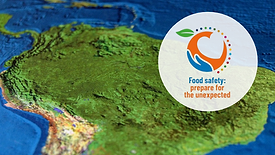Management
A Q&A with Ana Maria Coronado, M.B.A., International Food Safety Expert and Consultant, Peru
Read More
Never miss the latest news and trends driving the food safety industry
eNewsletter | Website | eMagazine
JOIN TODAY!Copyright ©2024. All Rights Reserved BNP Media.
Design, CMS, Hosting & Web Development :: ePublishing











